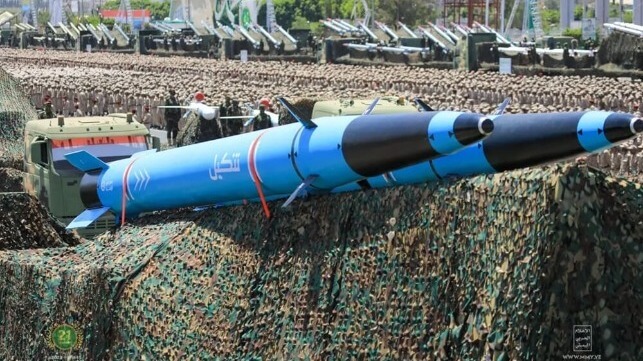Top Pentagon Weapons Buyer Says Houthis Have “Scary” Anti-Ship Missiles
Pentagon Official Warns of Advanced Missile Threat from Yemen’s Houthi Rebels

Last week, a top official from the Pentagon raised concerns about the missile power of Yemen’s Houthi rebels. Dr. William LaPlante, who is in charge of buying military equipment for the U.S., said the Houthis have developed advanced missile skills that are rare even among some of the world’s most powerful countries.
Dr. LaPlante, who has a background as a physicist and engineer, was surprised by how far the Houthis have come. “I’ve been around missiles for most of my career,” he said. “What the Houthis have done in the last year is shocking.” According to him, the Houthis have improved their missile technology and production abilities significantly, especially for a regional group with limited resources.
The main issue, according to LaPlante, isn’t just the fact that the Houthis are using up U.S. Navy’s defense missiles, but that they have become very skilled. He hinted that the new Houthi missiles are much more advanced than what they had before, although he couldn’t give many details because of security reasons.
He shared that the Houthis now have long-range anti-ship ballistic missiles, which are impressive in their capability. “They can now do things that only advanced nations can do,” LaPlante said. “They are making thousands of these missiles, and they are not just simple ones. They are very technical, and it’s remarkable.”
Houthis Allow Salvage Crew & Ships To Access Oil Tanker They Set on Fire in The Red Sea
This shift from using drones to ballistic missiles is significant, LaPlante noted. Unlike drones, which are dangerous, ballistic missiles can cause much more damage, especially if they hit a military ship. He described how dangerous it could be if one of these missiles hit a U.S. Navy ship. “A ballistic missile strike on a surface warship would be a very bad day,” he warned.
Dr. LaPlante’s warning about the Houthis is part of a larger picture of global security threats. He mentioned that Russia is also spending a huge portion of its money—about 10-15 percent of its economy—on building up its military, which is much more than many NATO countries. “Our countries need more political will to take action,” he said. He emphasized that getting enough resources is the key to staying prepared. If countries can gather the resources, they can speed up production even if it takes time.
The world is changing, and these growing threats mean that countries like the U.S. need to be ready to face new challenges. Whether it’s the increasing strength of groups like the Houthis or the massive military investments by Russia, it’s clear that the global military landscape is becoming more dangerous.
